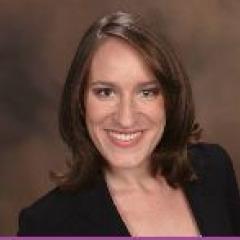
Not Your Typical Job; Not Your Typical Employee
I like to tell the story of my grandfather’s arrival in America. It makes me feel proud to share that my grandfather, who was deaf, outsmarted the immigration officers in America. Before leaving Germany in 1937, my grandfather took lip reading lessons. Upon arrival in America, he was able to respond to the officer’s questions by reading his lips. When my grandfather was leaving, the officer said something, which my grandfather did not hear. When the officer finally got his attention, my grandfather apologized, saying that he had caught a terrible cold on the journey, and his ears were so clogged he was having difficulty hearing. My grandfather’s quick thinking meant the difference between safety in America and being sent back to a country where his disability would have been a death sentence. This story makes me feel proud to say that my grandfather was that smart and resourceful, but it also makes me feel proud to be able to share the adversity that he overcame, despite his disability.
My grandfather was a baker; in this career he could use his creativity and talents despite his disability. My congregation, Temple Beth-El of Northbrook, IL, has been working hard at becoming a more inclusive community. One of the members of our inclusion team has been helping to raise awareness and opportunities for members of the community in their early 20’s who have talents and skills that might make them right for atypical jobs.
When thinking about employment, our natural instinct is to think about “typical” jobs. However, if we were to walk through our synagogues and professional buildings, we might find many opportunities for people with disabilities to be employed within our organizations. While you and I might not enjoy organizing the religious school closets or bulletin boards, a young adult with Autism who really enjoys organizational tasks might make a great employee a few hours each week. The young adult who suffers from social and behavioral disorders, but is really great with technology, might make a great sound system engineer on Fridays and Saturdays, or for concerts. A young adult with Down’s syndrome who loves nature might make an excellent gardener to help with maintenance of the temple’s garden. What about the mail, or recycling bins, or food preparations for the oneg, meetings, and religious school snacks? A job that might seem mundane or even like something that does not require that much attention, might be the perfect opportunity to employ someone with a disability, to help provide education for your community, and to spread a little good in the world.
When thinking about how to provide employment for people with disabilities, look to the following excellent examples. JJ Hanley is a Chicago based activist who provides training for both employers and employees with disabilities. Check out JJ’s organization, JJ’s List, here: http://www.jjslist.com/pages/about/4.php. The following clips demonstrate how simple it truly is to employ persons with disabilities, and the joy it brings to all involved: https://www.youtube.com/watch?v=PhPIi9KF4Cw, https://www.youtube.com/watch?v=ciWRYY_n-sE and https://www.youtube.com/watch?v=UQ-8p5DN26c.
February is Jewish Disabilities Awareness Month. In addition to doing great things within your building and school, such as providing large print prayer books, using person first language, or lowering mezuzas, consider finding ways to employ a person with a disability within your synagogue. This will bring goodness to the individual, to the community, and most importantly, it will echo a vital Jewish value: each person, created in God’s image, has much to offer the world.
Cantor Faryn Kates Rudnick has served as Cantor of Temple Beth-El in Northbrook, IL since her ordination from the Hebrew Union College-Jewish Institute of Religion’s Debbie Friedman School of Sacred Music in 2013. Faryn is currently the secretary of the Reform Cantors of Chicago, and represents the American Conference of Cantors on the Jewish Disabilities Network. Faryn’s senior thesis at HUC-JIR was entitled: Making Judaism Inclusive: An Exploration of Judaism and Hearing Disabilities.

